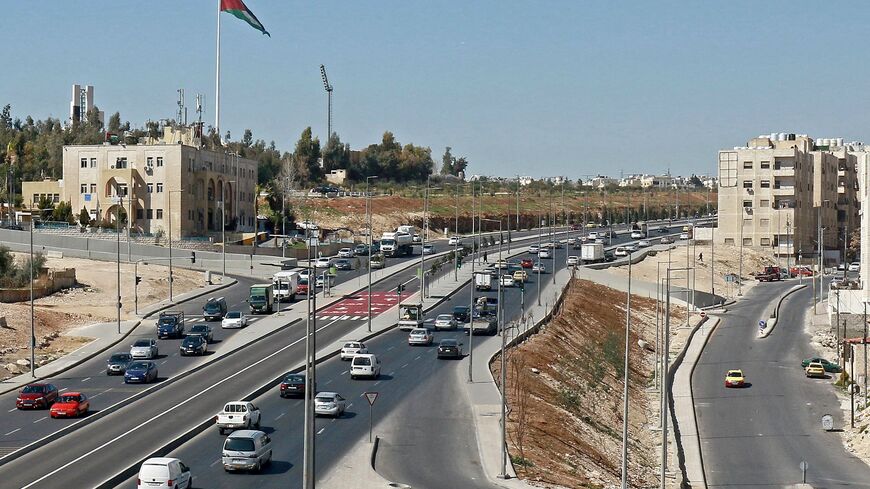Jordan’s Finance Minister Mohamad Al Ississ said S&P Global’s decision to keep the kingdom’s sovereign credit rating at B+/B last week was a sign of confidence in its implementation of International Monetary Fund (IMF) reforms.
"This is ... a collective validation across rating agencies in recent months in their confidence in Jordan's monetary and fiscal policy," Ississ told Reuters, at a time when other emerging markets were being downgraded.
The three-phase Economic Modernization Vision ambitiously claims it will increase average real income per capita by 3% annually, create one million jobs, and more than double the nation's gross domestic product (GDP) with an injection of $57.83 billion over 10 years.
Laith Alajlouni, a Jordanian political economist and researcher, said Jordan can compete globally in a variety of promising sectors, including tourism, which took in about $2.87 billion in the first seven months of last year.
He said another developing sector is information communications and technology, which saw 6% growth during the pandemic and made up 3.8 percent of the country's GDP last year with total annual revenue exceeding $2.3 billion.
However, Alajlouni said that Jordan’s aid dependency, which now stands at more than $3 billion annually, has created a system of inefficiency and prevented the country from enacting economic reform policies.
“First, the money trickles down through a sort of distribution to key tribal leaders, state officials, and their social networks,” he said. “You’ll have someone who wants to build a street, hospital, or university somewhere as a favor, and the money gets distributed without proper needs-based assessment.”
King Abdullah tried to change this deep-rooted system, but he was unsuccessful. Alajlouni said, “It’s not easy to combat these forces because it will upset so many people in this ingrained system.”
Jordan’s former Minister of both State for Investment affairs and Labor, Maen Al Qatamin, who shifted back to the private sector in 2021, believes the reform plan does not address Jordan’s core obstacle.
“We have a very inefficient bureaucracy,” he told Al-Monitor. "This has meant resources such as fuel have been mismanaged for decades, preventing real economic growth that averaged at a sluggish two percent for GDP over the past decade."
Jordan is import-dependent for water, energy, and food, making its security vulnerable to external shocks. It is one of the most water-scarce countries globally, yet loses up to 60% of its water supply due to leakage and theft, according to research agency Fanack Water.
The IMF stated in December that “electricity and water sector reforms are critical for preserving the sustainability of public finances.” Jordan imports 90 percent of its energy, despite having an abundance of renewable resources such as wind and solar, said Qatamin, which can power most of the country if managed properly.
In December, gas price hikes to finance the country’s modernization vision were announced, which led to mass truck driver protests. Four years earlier, thousands protested similar reforms that forced out the prime minister at the time, Hani Mulki.
Levying taxes, fees, and extra costs is always Jordan’s fiscal policy answer, said Qatamin, contributing to a growing deficit, which reached an 88.4% debt ratio by September 2022. The result is a lack of private sector growth, he said, accompanied by 22.6% unemployment in mid-2022.
How to break this mindset of mismanagement and the country’s expanding economic dependency, said Qatamin, “is the million-dollar question.”
But some in the private sector believe that this time, it’s different.
Alaa Abu Khazneh, a board member at the Chamber of Industry and an elected representative of the plastics private sector, said, “This is the first time that the royal court is involved. So policies won’t be thrown away if the government is changed, which happens about once every year or more” — although many see royal power expansion as a cause of a revolving state government.
However, other challenges continue. "Paying 20% income tax and a 16% sales tax limits growth potential," said Abu Khazneh.
What's more, electricity prices for businesses in Jordan are the second highest in the Arab world after Oman, paying about $0.123 kilowatts per hour as of June 2022, reported Global Petrol Prices.
Abu Khazneh and others who spoke to Al-Monitor said Jordan’s 10-year economic vision is promising, but conditional.
“King Abdullah II is respected throughout the world, and the world is helping Jordan. But Jordan has to help itself with domestic reform,” said Alajlouni, who believes that the status quo is changing, but not as quickly as it should be.


f0eb.jpg)





